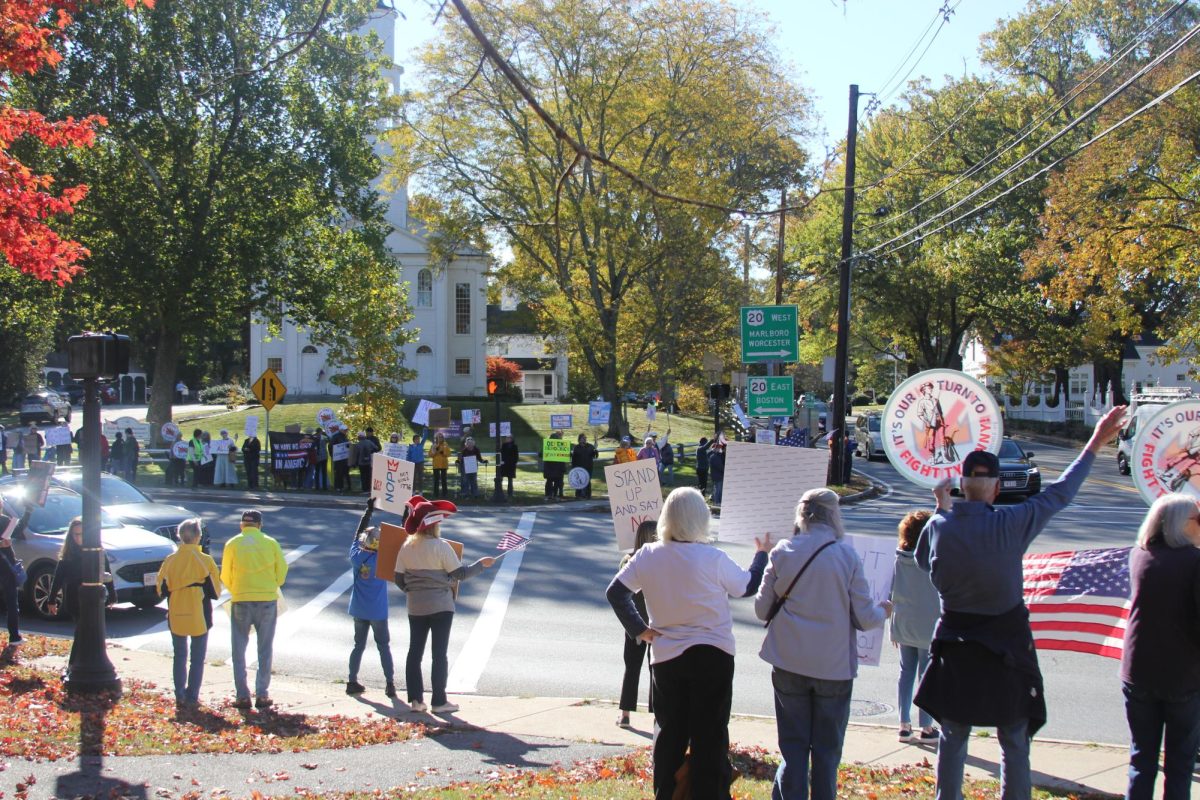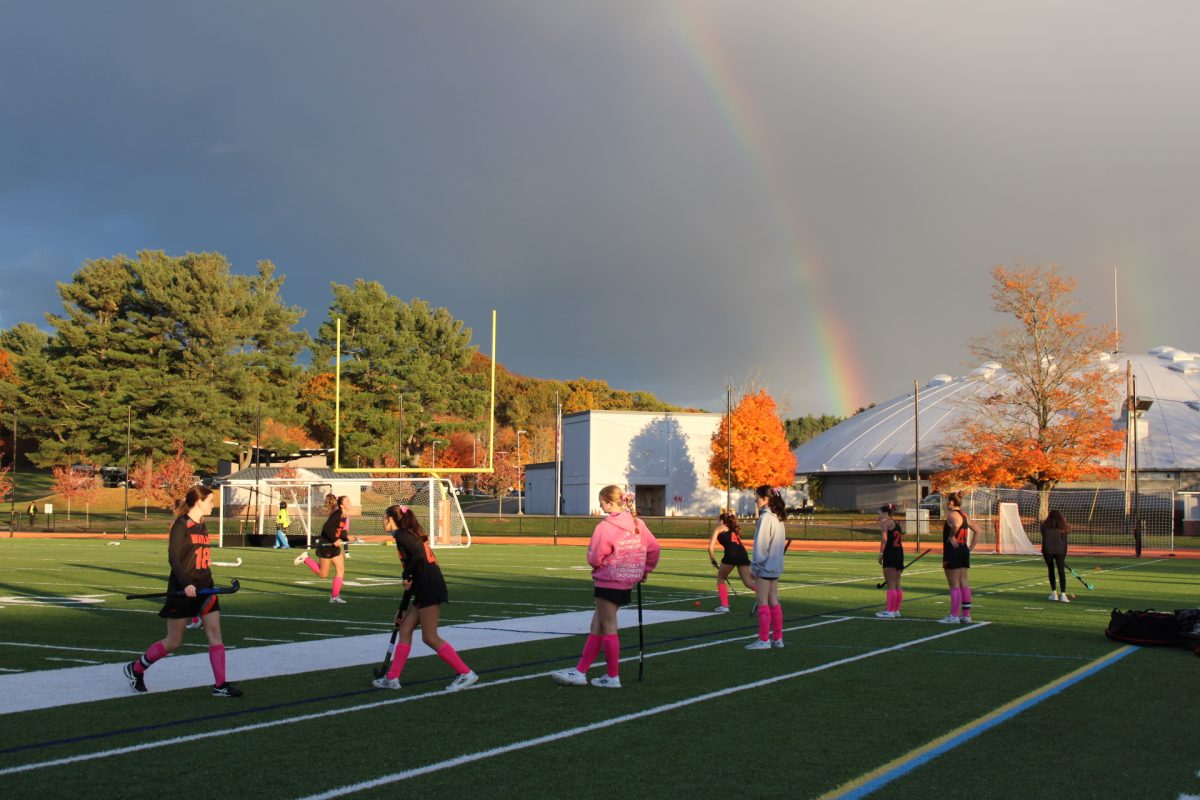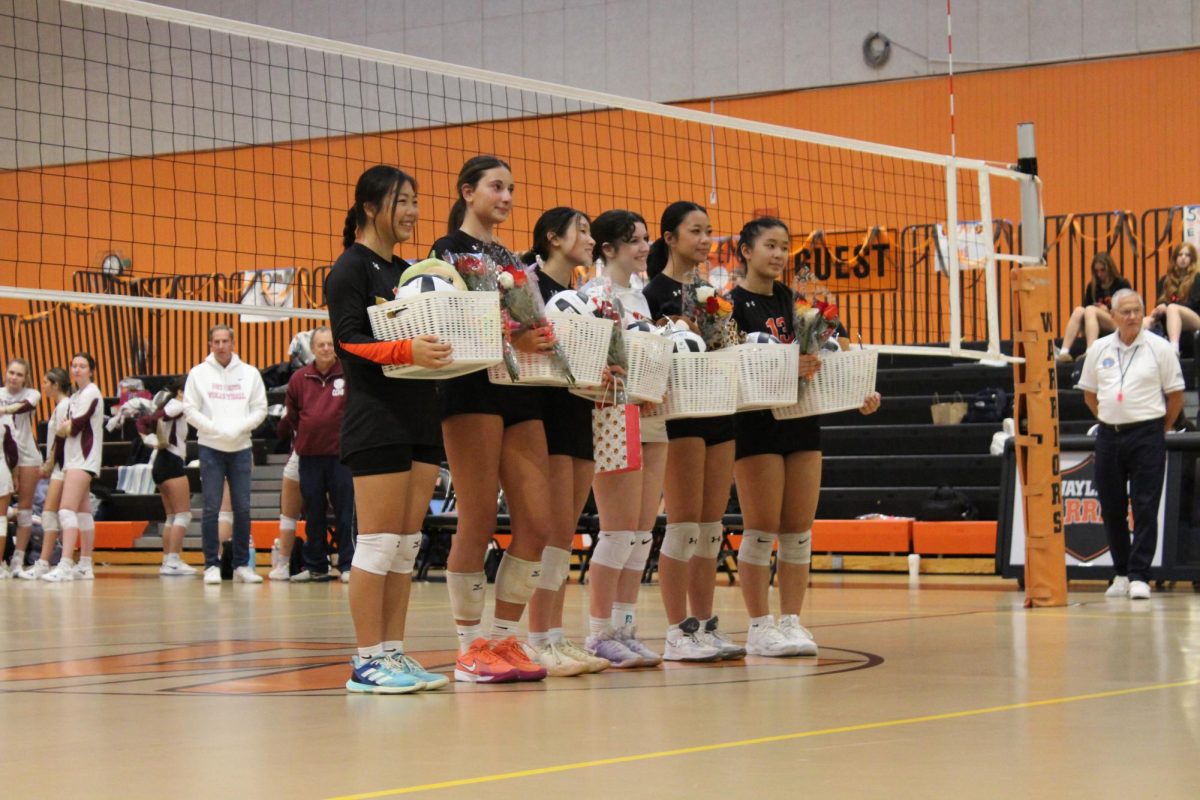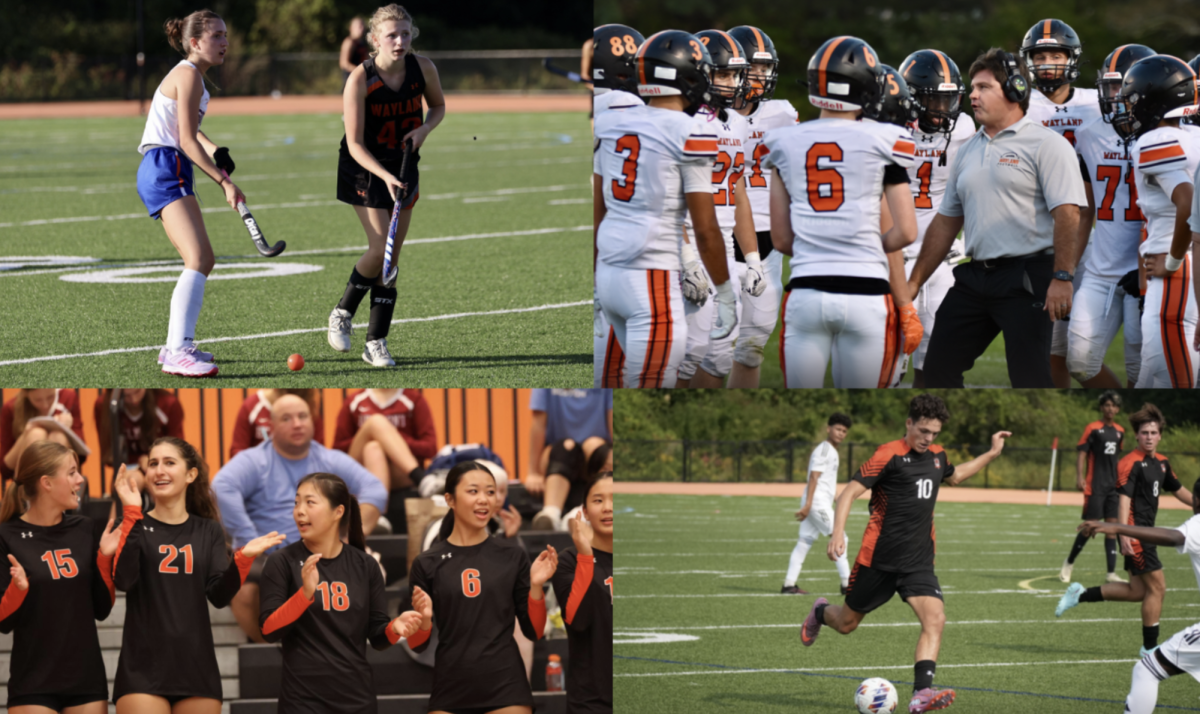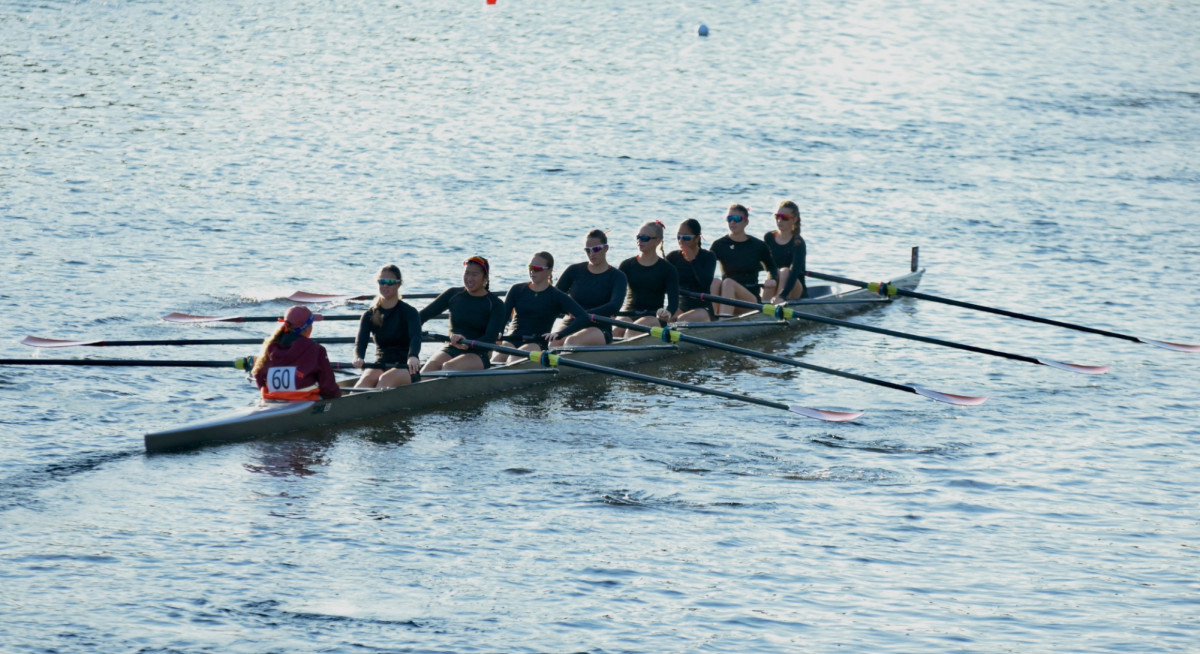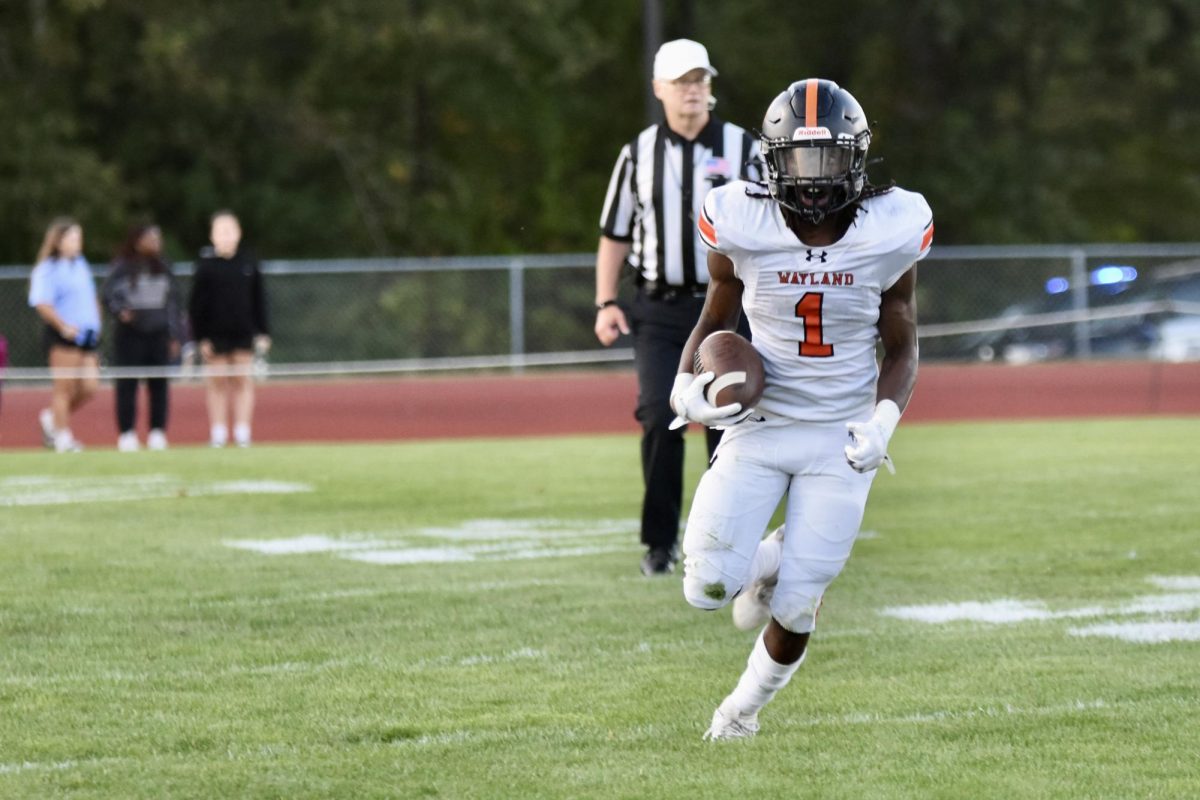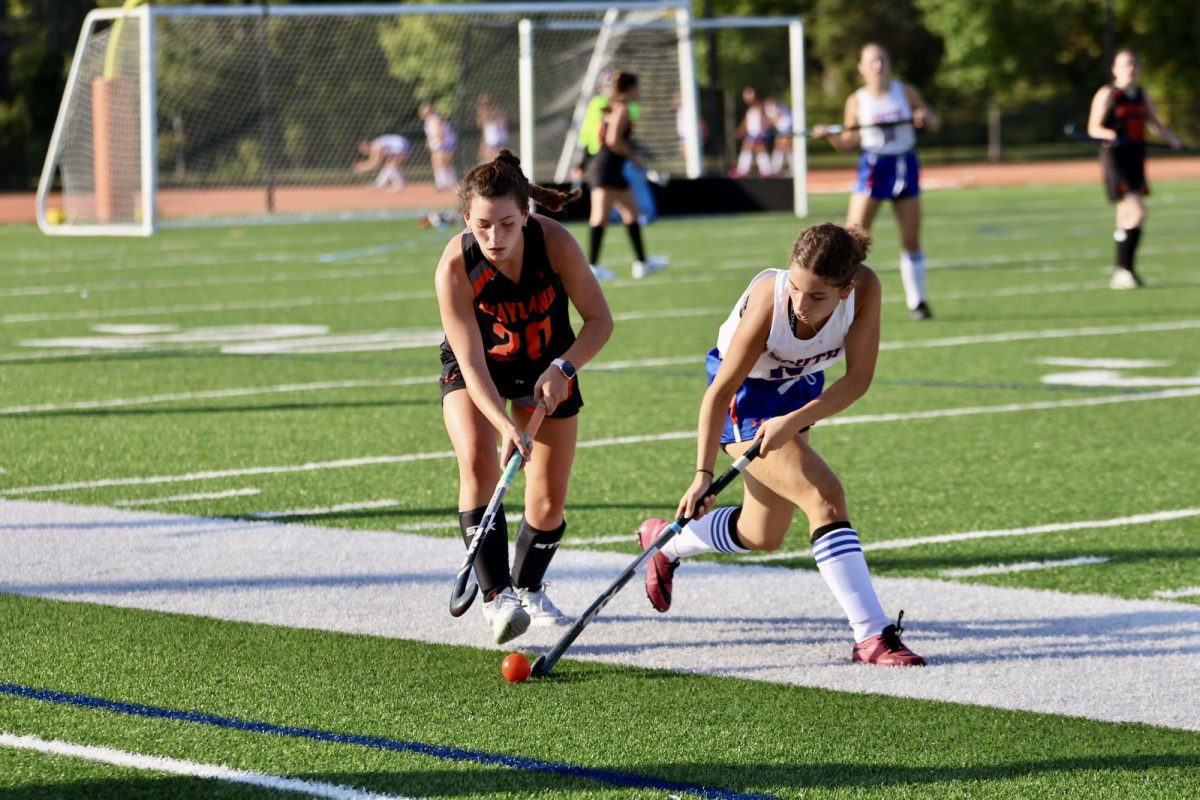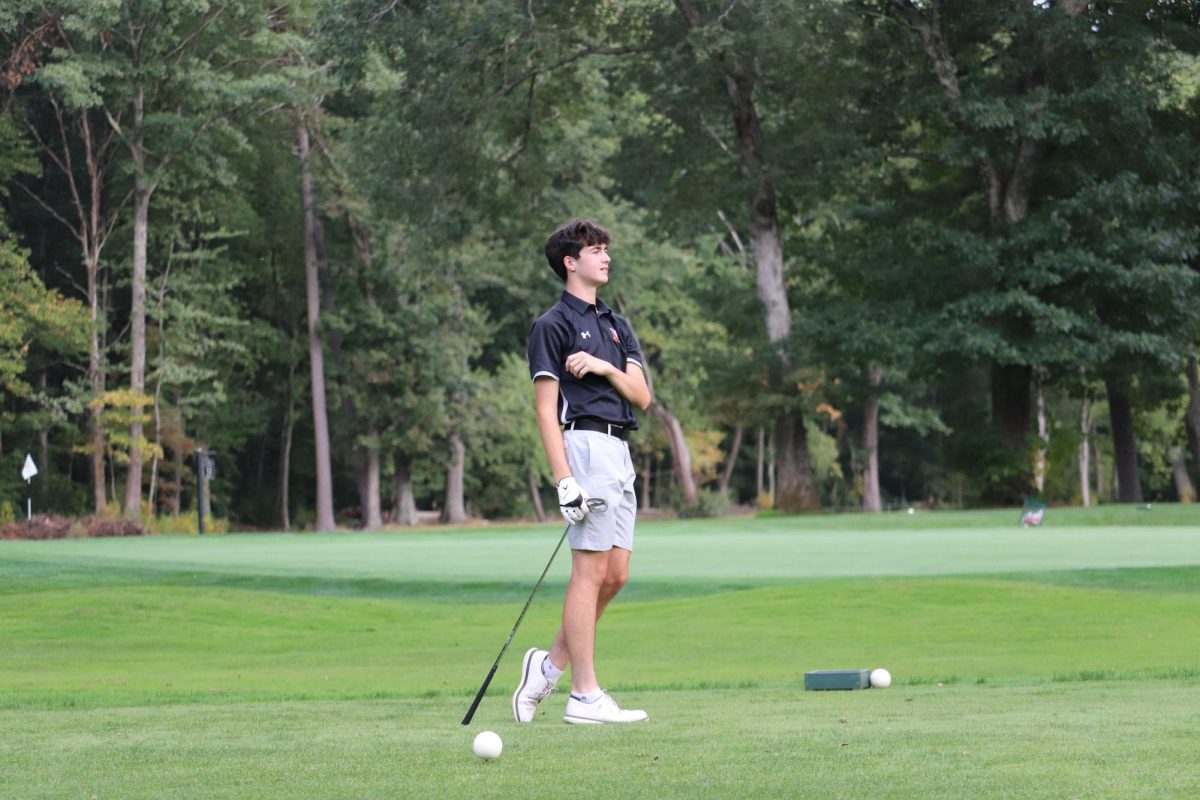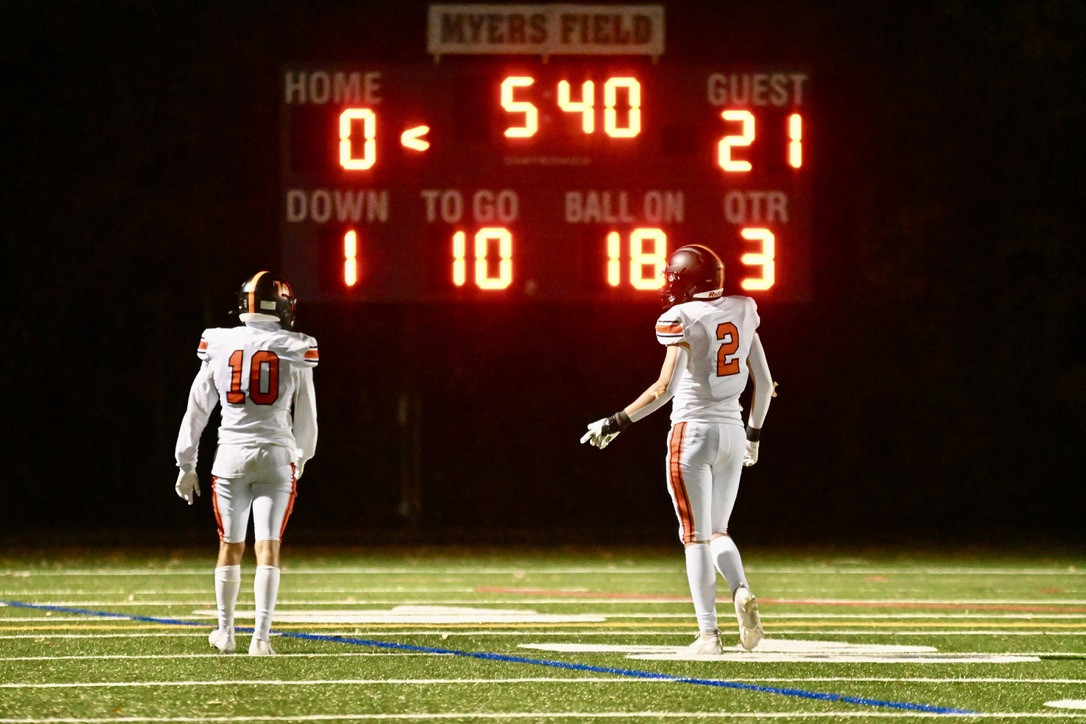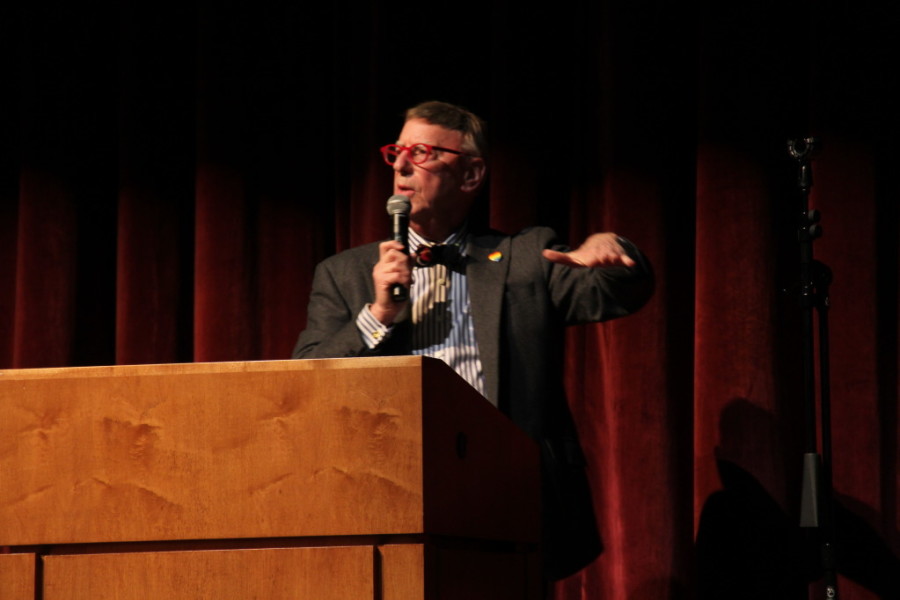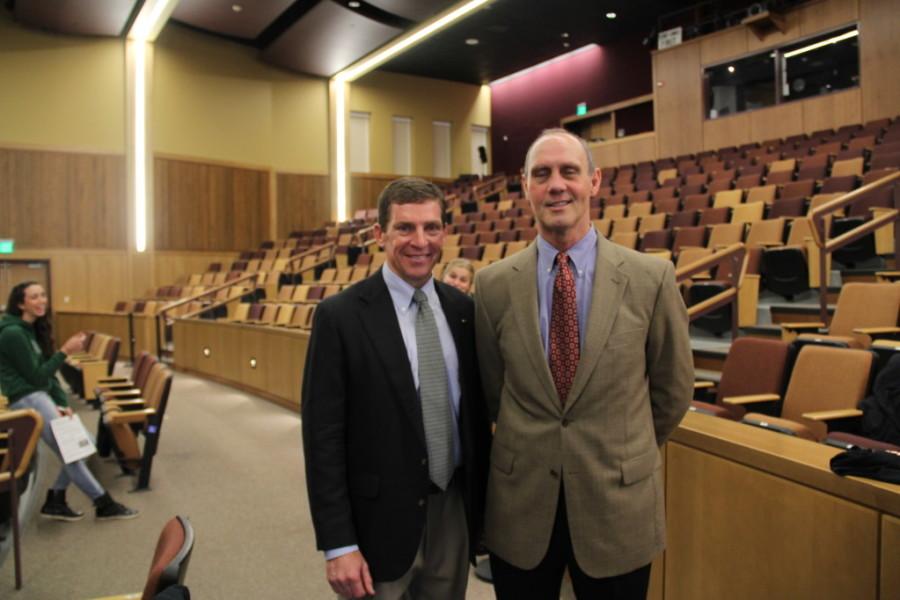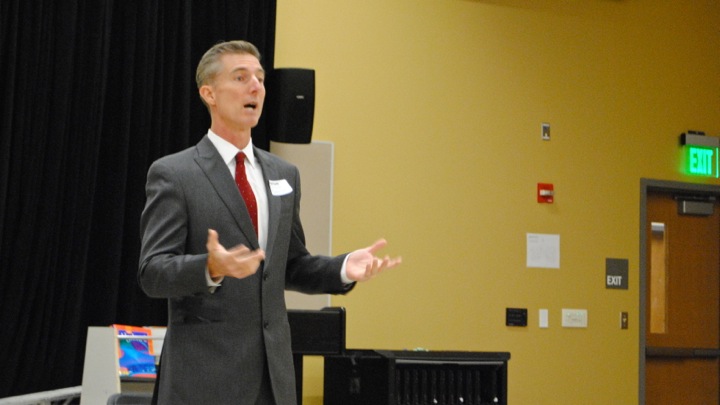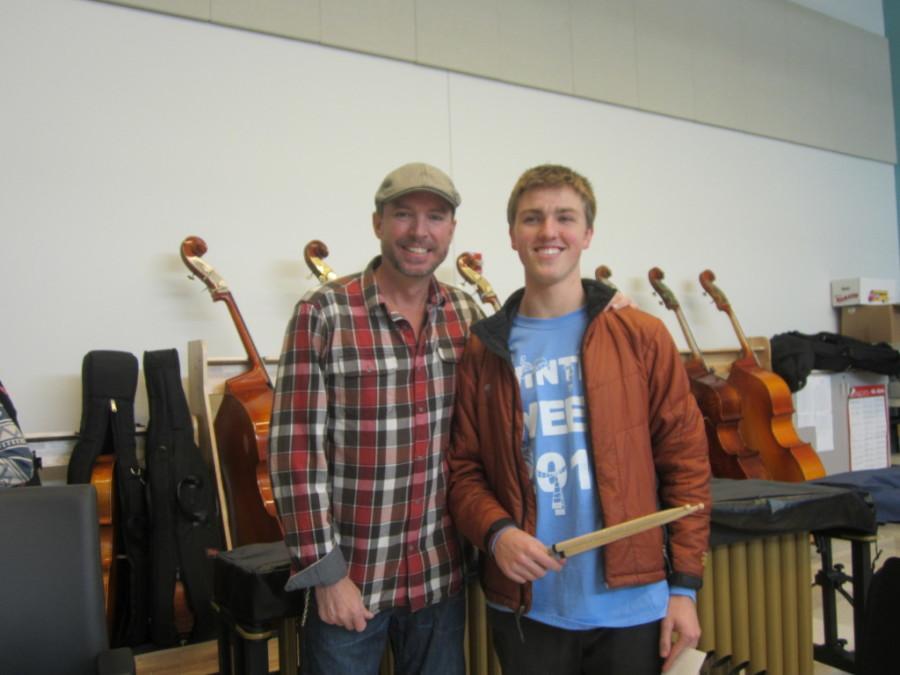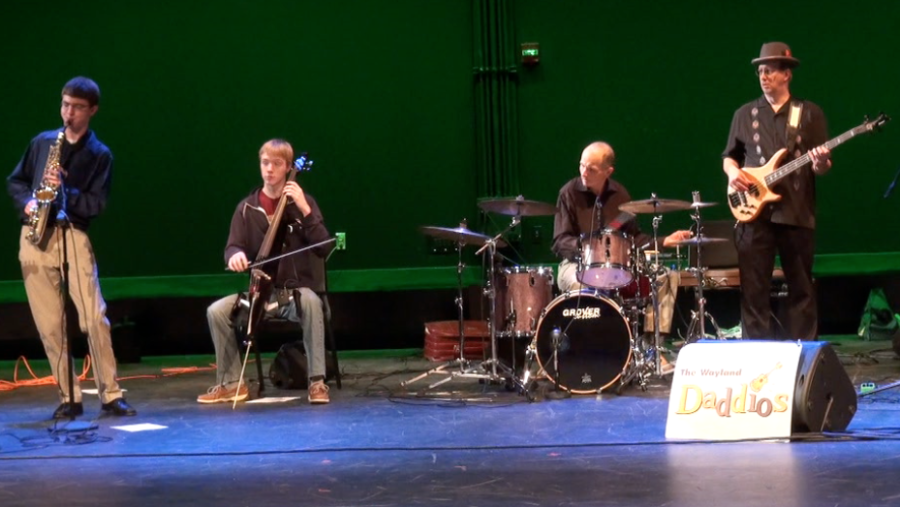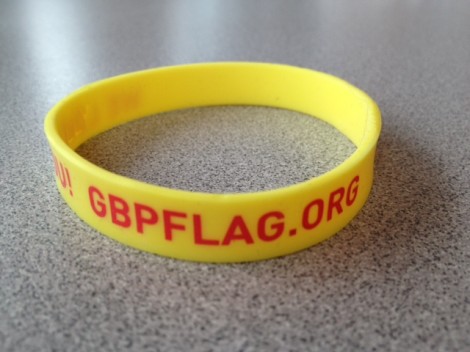
“This is an opportunity to affirm our beliefs and values as a school,” Principal Tutwiler said before the start of the presentation.
Out of the four PFLAG speakers, three shared their experiences as gay youths and the obstacles they faced.
One these speakers was Ethan Sobel, a graduate student at Boston University. Sobel struggled to come out in high school for fear of his peers’ judgment.
“It wasn’t okay in the locker room, it wasn’t okay in the orchestra and it wasn’t okay in the classroom,” Sobel said.
During his sophomore year in college, Sobel reconnected with a friend, Rachel, from elementary school, who told Sobel she was gay.
“[Rachel] became my only confidante. I finally had someone who I could talk to about my struggles,” Sobel said.
Sobel would visit Rachel in Washington D.C., where he could be himself and socialize with the “very gay-friendly community.”
But when Sobel returned to his education at the University of Massachusetts Amherst after each trip was over, he had to again hide behind his mask.
“I would come back from D.C. on the weekends and become straight Ethan,” Sobel said.
After much deliberation, Sobel decided to come out to his friends as bisexual. Although his friends accepted Sobel’s bisexuality, Sobel was still hiding his true identity of being gay. It wasn’t until Rachel invited him to the Convention for Jewish LGTBQ Students that Sobel realized he was not alone in his struggles.
“I was with people who grew up like me, culturally Jewish, and who had a lot of the same experiences as me. This was flooring to me,” Sobel said.
Upon returning to UMass Amherst after the convention, Sobel realized he needed to further clarify his identity and decided to fully come out. This time, he told even more friends he was gay and requested that they introduce him to other homosexual people they knew. No longer hiding, Sobel became more active in the gay community.
“If there was a gay party, I was there. If there was a gay dance, I was there. If there was a gay protest, I was there,” Sobel said. “Life was finally becoming what I wanted it to be.”
The fourth PFLAG speaker was Mark Mettler, the father of a self-identified gender queer who was born genetically male.
One of PFLAG’s goals is to encourage parents to be supportive of LGBTQ youths.
Mettler shared his parent perspective and described his child, Maxie, as “extremely creative since a young age.” As a toddler, Maxie wore improvised dresses composed of a long t-shirt with a belt to cinch it and insisted on being called “Ally.”
“We passed that off as part of his creative personality and that most kids his age in the neighborhood were girls,” Mettler said.
In November of his senior year, Maxie came out to his mother and brother. It was not until the following February that Maxie felt comfortable enough to come out to his father. Mettler recognized how intimidated Maxie must have been when revealing his sexuality to him.
“I told him that nothing had changed in our relationship and that I still had the same hopes for his life,” Mettler said.
Since his child came out, Mettler has had a stronger relationship with Maxie.
“The most rewarding thing about being a parent is welcoming new adults into your life eventually and having new friends, people you can learn from and people who are different from you,” Mettler said.
One of PFLAG’s more affecting statements during the presentation included the use of a common phrase most high school students hear every day: “That’s so gay.”
Pam Garramone, a representative of PFLAG, asked sophomores to stand up if they know someone who is LGBTQ. Almost every single student stood up.
Following these results, Garramone asked students to stand up if they had ever heard someone using anti-gay language. Once again, every student stood up.
The last question asked for sophomores to rise if they had ever said something when hearing anti-gay language. This time, only approximately one-third of the audience stood.
“It’s the actions that you take [and] the words that you say because you don’t know who is an L, G, B, T or Q. [He or she] could be a person in your locker room, a person in your orchestra or someone sitting next to you today,” Sobel said.
“I think it’ll take much more than a presentation for people to realize how wrong LGBTQ intolerance is. It’ll take a societal shift, but I guess it starts with presentations like these,” sophomore Katherine Wang said.

